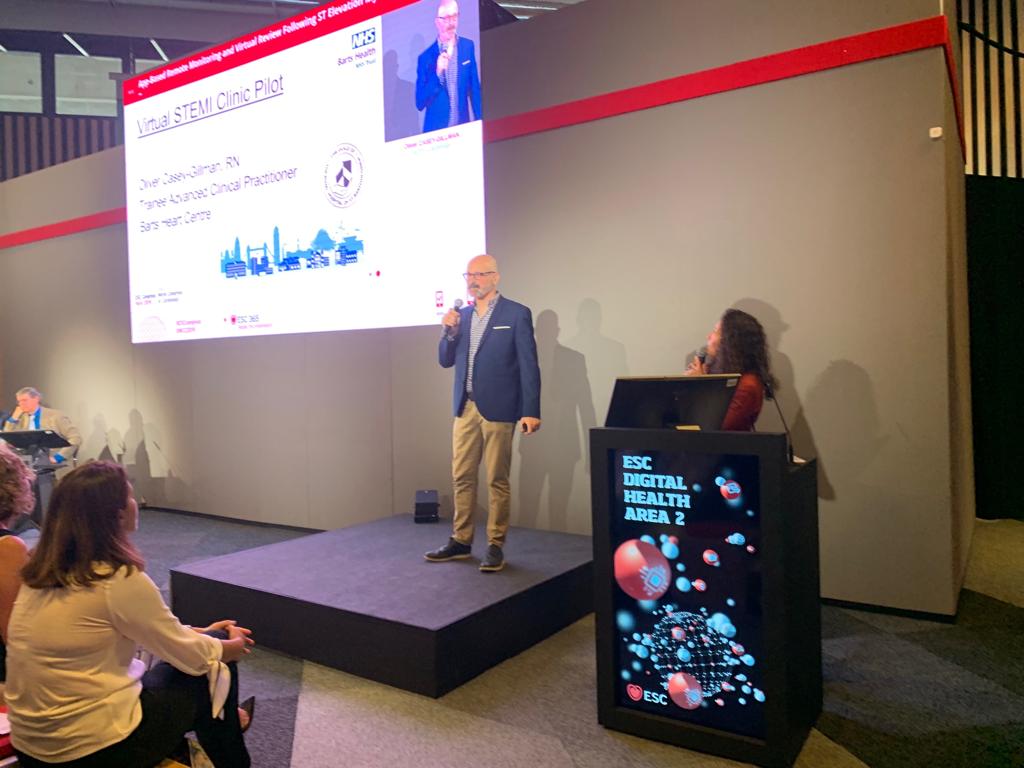European Society of Cardiology Conference 2019

October 4th, 2019
Oliver Casey-Gillman, one of three trainee Advanced Clinical Practitioners (ACPs) in cardiology at Barts Heart Centre, recently attended the European Society of Cardiology (ESC) Annual Congress in Paris to present an innovative, nurse-led service that has recently been piloted at Barts. The ESC Congress is held once a year and is the world’s largest conference in cardiovascular medicine, with a strong global reputation as an event that provides the latest research findings and their interpretation, in-depth science, and solid education, with 35,000 attendees from 150 countries. It provided a fantastic opportunity to showcase the work that the ACPs and Barts Health have achieved.
The Trainee ACPs, supervised by lead Katrina Comer, are based on 3C and 3D short-stay cardiology wards at Barts, and cover 24 beds/trolleys and 12 day-case chairs. They are responsible for assessing and clerking all inter-hospital transfer patients, seeing elective patients, and assisting with all aspects of discharges. Oliver and his colleagues, Lizzie and Sue, also assess unwell patients using physical assessment skills and help to manage deteriorating patients and resolve clinical issues. They are all currently working on an MSc programme in advanced clinical practice at City University in London, which includes becoming non-medical prescribers in 2020.
Having obtained funding from Barts Guild to attend, Oliver reported to an audience of 150 medical and nursing colleagues from around the world that this pilot study provides early data that the virtual assessment of patients following a ST-Elevated Myocardial Infarction (STEMI – potentially the most unstable emergency, requiring immediate treatment) is feasible, safe and acceptable to patients.
The Virtual STEMI clinic aims to increase accessibility to post-procedure care for patients while reducing waiting times and cost. The clinic runs via a smartphone application; a remote monitoring platform allowing patients to upload vital signs, and enable two-way messaging and video consultation between the ACP and patient.
